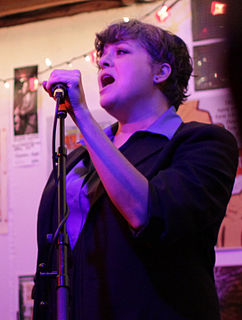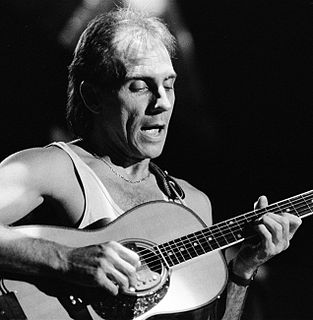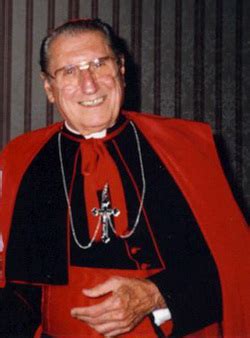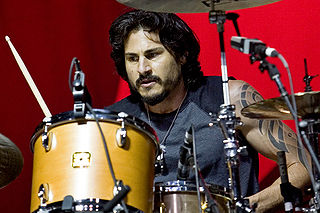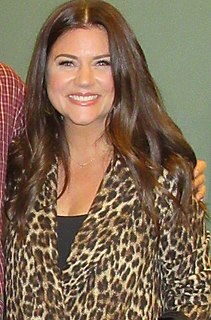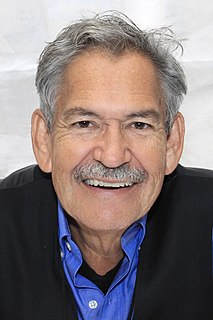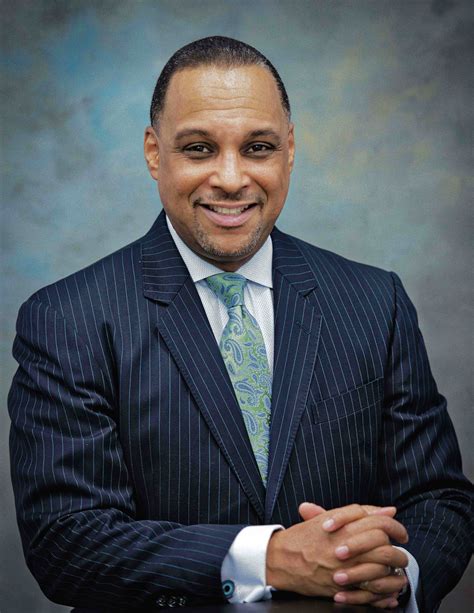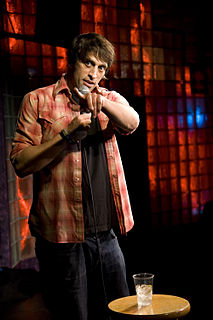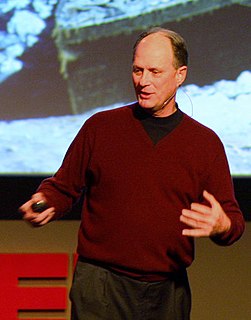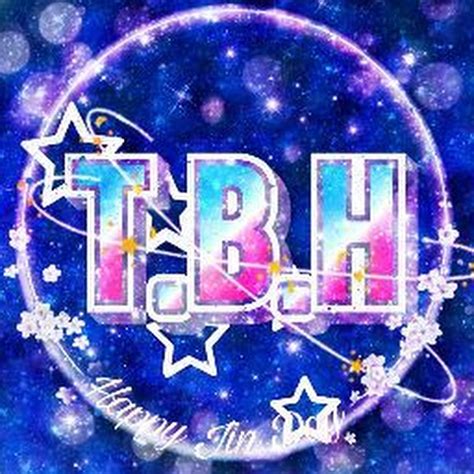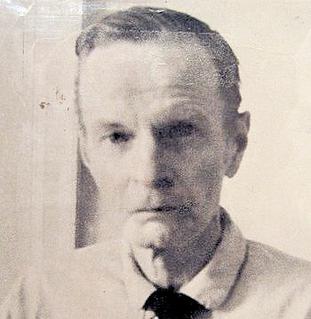Top 642 Teens Quotes & Sayings - Page 11
Explore popular Teens quotes.
Last updated on April 19, 2025.
I feel somewhat privileged because I often feel very sorry for kids. I often feel very sorry for 20-year-olds and teens who grew up with the internet and have grown up completely connected because, for me, people like me know what it was to struggle, but it wasn't a struggle. It was great! It was fantastic. The thrill of the hunt.
My friend Madea has "attitude" that comes with wisdom. Back in our teens and twenties, we thought we knew everything and made all those foolish mistakes. Then, when we got a little older, at thirty, we started getting these flashes of light, revelations of what a great and lucky thing it is that we didn't get caught doing those stupid things back then. Around forty, if we are lucky, we stop lying to ourselves. Fifty and above, we've run out of patience for foolishness. Take me to the bottom line.
The food industry is spending almost $2 billion a year marketing directly to children and teens. We know that those ads lead to children demanding certain brands, and we know that food and drink marketing gets all of us to consume more calories. If we're going to address diet-related illnesses, talking about marketing to kids is a key step. There should be places like schools that are protected sanctuaries from commercialization and from advertising, especially when it comes to kids' health.
I'd worked on a series of Chicken Soup for the Teenage Soul books called The Real Deal for HCI books, which featured essays and poems from teens.Finding the right authors for the series has been no easy feat, mostly because I'm looking for a perfect blend of a teen girl with an interesting story or hook, fantastic writing talent, and the confidence to commit to writing a 30,000+ word book in a matter of months. It's a huge commitment and I recognize that, so the fit has to be there from all these different angles.
My favorite leader is George Washington. Because he came from very modest circumstances. He wasn't the son of a plantation owner. He was the son of a farmer. He had no formal education, very frustrated. He started writing a diary when he was in his teens, and he wrote things like, "When I grow up, I want to be respected. When I grow up, I want to be successful. When I grow up, I want to know things." What I find fascinating about Washington is he wanted to make something of himself.
I want to tell everybody that you won't hear me trying to pop bottles in the club and all that kind of stuff. It's just not me and I think as long as you stay within your element and your age bracket, sure you're going a couple of young folks and teens, but that's not who I'm focused on. I'm really not. I love whoever supports, but I'm just not going to try and go back there because times have changed. If you don't move with the times, you'll get left off. I'm trying to change with the times.
Looking back through the mists of time, I recall some distinctly religious experiences in my teens--when I was only fourteen years old to be precise. These experiences opened my mind to the idea of a Creator and that caring for other living things was a Christian duty. My parents were not strongly religious at the time and when I announced at that youthful age that I wanted to be a priest, it not unnaturally provoked some incredulity, even mirth. In the same year, I became a vegetarian, which--for family and friends--was even more vexing.
I used to listen to music from the frosting down. As a word nerd, lyrics are really important to me, and then the melody. Playing in the Rock*A*Teens was the first time I ever heard music from the bottom up. I was hearing songs I'd heard a million times on oldies radio, and I'd be like, "Wow, listen to what the bass is doing!" When I was first singing in bands, I'd just get out there with my machete, wildly whacking away at the foliage. But you learn how to listen. When I feel I'm doing it right, it's 90% listening and 10% output. It's not "look what I can do!"
My advice to teens is to try and do something that scares you every day because it's the only way you can test how far you can really go. Whether it's going out and auditioning for the play or trying out for the basketball team, you have to explore your boundaries and see where you really want to go and the only way you can do that is to break out of your shell.
By sixteen I thought, "Ah, this is all crap, you're all sheep, I'm not going to church, leave me alone." And then at a certain point in my teens I started to go to Catholic churches, by myself. Not because I wanted to be Catholic, but because I wanted to light a candle and say something like a prayer and just sit there. There was something I was missing or trying to reconnect with. But it was a secret at the time. I'd developed this cynical persona and the last thing I wanted to admit was that I was skulking around churches in my spare time.
Back in the day in my teens I was listening to Joe Pass and Wes Montgomery a lot; before that I was listening to what I would call now the more 'simple' jazz players (but still very valid), like Barney Kessell or Johnny Smith; I learnt a lot of voicings from Johnny Smith records. Now, I listen to the old blues players; that's what you'd hear in my house if there was music on. It would be Albert Collins or Albert King.
Abbey," Sarah said, "life is to be lived. If you're living, you're going to stumble along the way." "All the time?" Abigail lept to her feet and began to pace. "I have such a bad temper and when I was in my teens, I wasn't above using my gift for revenge. None of you did that." Joley slowly raised her hand, sliding down in the chair as she did so. Hannah followed suit, though she didn't look in the least remorseful. Sarah shrugged her shoulders and raised her hand and glared at Elle, who just grinned sheepishly and put up a couple of fingers. Carol tossed her head and waved her arm with gusto.
Personally, I never understood the power of having books written about your experience - whatever that experience may be - until I wrote one and started hearing from teens. I just got an email from a reader who said that "Thirteen Reasons Why" was the first time they had felt understood. A book shouldn't be anybody's first time feeling understood and that's where censorship bothers me. These books need to be out there.
I will say that 'Riverdale,' yes, is a little more sensationalized. It's based on comics, and it is a little bit more dramatic and a little bit more made for TV, made for teens. For '13 Reasons,' we tried hard to make it as real as we could, as close to reality as possible. No corners were cut; everything was very raw and very real.
I was a crazy Pee-wee Herman fan when I was in my early teens. Before he had the kids' TV show, he had a nightclub show in L.A., and I had gotten a VHS copy of it. It was a kids' show, but onstage in a bar, so it's sort of poking fun at the kids' show. And I was obsessed with that, and then 'Pee-wee's Big Adventure.'
The common belief that coaches must be abusive to be successful is a myth. Research shows that if you find a task fun, you'll perform better. If more coaches took . . . a Golden Rule approach to coaching, treating their players the way they themselves would like to be treated, fewer athletes would drop out of sports in their teens, and more athletes at every level would be happier and more satisfied.
We all have to go through our own spiritual process. It is very difficult. Some people are struggling and they are in their teens. Some people are in their 50s and they're struggling. Some people go through life and die not being able to accept themselves. Tragic. But it's very individual. And it's about self-esteem.
It is most heartening to learn that young men and women, in their late teens and twenties, are increasingly attracted to meditative prayer in the Presence of Jesus in the Blessed Sacrament. May all the faithful find in the Eucharist their source of strength and courage to imitate our Lady, totally open to his will in their daily lives. It is my hope that this devotion to Jesus in the Eucharist will spread to more and more parishes and dioceses across our nation.
Schwartz's research suggests something important: we can stretch our personalities, but only up to a point. Our inborn temperaments influence us, regardless of the lives we lead. A sizeable part of who we are is ordained by our genes, by our brains, by our nervous systems. And yet the elasticity that Schwartz found in some of the high-reactive teens also suggests the converse: we have free will and can use it to shape our personalities.
In spite of conflicting signals - and in spite of a popular culture that sometimes puts down their innocence - most of our kids are good kids. Large numbers do volunteer work. Nearly all believe in God, and most practice their faith. Teen pregnancy and violence are actually going down. Across America, under a program called True Love Waits, nearly a million teens have pledged themselves to abstain from sex until marriage.
Post-adolescent Expert Syndrome The tendency of young people around the age of eighteen, males especially, to become altruistic experts on everything, a state of mind required by nature to ensure warriors who are willing to die with pleasure on the battlefield. Also the reason why religions recruit kamikaze pilots and suicide bombers almost exclusively from the 18-21 range. "Kyle, I never would have guessed that when you were up in your bedroom playing World of Warcraft all through your teens, you were, in fact, becoming an expert on the films of Jean-Luc Godard.
I don't really talk about this because it seems indulgent, but I lost my hair, I'm bald, I had alopecia in my teens. That was back in the late '80s, well before people shaved their heads. So it's probably one of the reasons why I have been obsessed with that age, because it's locked in time where I feel like I had this personal loss that so affected my vanity, and I don't really feel like I handled it well. I'm so much older now, so it's not a big deal, but when I think back at it, I can conjure up how I felt then.
I think it’s really important, and it’s a lesson I didn’t learn until my late teens: Whatever bands that you love, go find out what bands they love, and what bands turned them on, and then you really start getting into the human aspect of it because the further back you go in time the less technology you had, and consequently the better records you had. There’s this incredible library of music thank god.
No. I can quite happily say someone is handsome, good-looking, and I can see why someone would want to f**k them, but I've never felt that way about a man myself. There is that moment in your late teens when you ask yourself the question, 'Am I?' but I wasn'tWell, this year I have a talent crush on Ryan Gosling. I think he's fantastic and(ahem) you know he'd be nice afterwards. He seems smart. If I was gay, I would go for a smart man.
I think there's definitely much more opportunities for women now to find a role in 30s and 40s both. I think you're starting to find people really seeing that - here's the thing. It's hard for me to say and know the experience how it was ten, twenty years ago because I was only in my teens and my 20s, but I know from watching TV myself and watching film myself I see a lot more 30s and 40s on screen, which just makes me very, very happy. It's what we should be watching.
I think, to be honest, sort of emanated from the initial work of somebody else instead of SCLC. If you take Albany; I don't know whether you recall how Albany got started. There were two little guys who went up there first. One was Cordell Hull who was then in his teens - not Cordell Hull - Cordell Reagan, who came out of the Nashville movement, and Charles Sherrod, who came out of the Richmond, Virginia, movement.
I'm an ex-Catholic priest. I have such a complex relationship to Catholicism. On the one hand, if I called myself a Catholic it would have to be a very unorthodox one, as I just don't believe all of the teachings of the Church. But on the other hand, I'm an educated man because the Catholic Church educated me. It gave me something that is really important to me. So I always think about my faith. I always have it, and sometimes I can't talk about it, and sometimes I can. I am like an adolescent in that way. Teens are asking questions: who is God and what does it mean to have faith?
In my teens I fancied myself an artist; I hung out with the eccentric art teacher at my high school, painted still lifes and portraits and landscapes in watercolor and acrylics, took private lessons, won some blue ribbons for my earnest renderings. My lack of talent did little to dampen my enthusiasm. In college I thought I'd continue, but, like Salieri, I quickly realized that while I had the ability to appreciate art, I wasn't actually very good.
As an advocate for kids for over twenty years, I have watched things change since I was in school. Thankfully, this book made me face what I intuitively knew was real but pretended wasn't: The youth of our culture have been deeply wounded by our collective neglect and adult-driven self-focus. Young people need adults to understand what they are going through and people to care about them without a personal agenda. This book was very helpful to me, and my attitude toward teens will never be the same.
He may not see the King's antique apparel on kids in the Hall, but he does feel a tinge of nostalgia. The amount of teens wearing the Led Zeppelin '77 tour T-shirts walking around the Rock Hall is absurd. Absurd, ... I saw them on that tour and didn't even buy a shirt. It tells you what these kids feel about music. People take music very seriously.
The Drama Years is filled with heart-stirring stories, just-been-there advice from recent teens and practical, actionable tips for parents. It's full of real girls talking about everything from stress and body image to love and materialism. Reading this book, I cringed in recognition of my own drama years, just wishing this book had been around back then and so grateful I'll have it as a guide for my own daughter.
Most of the time you are growing up, people tell you what's wrong with you. Your coach tells you, your parents tell you, the teachers tell you when they grade you. I think that's very good in the early stages, because it helps you then develop skills. But at some point in your career, generally I think when you are in your teens, you look in a mirror and you have to say, despite all the bumps and warts, "I like that person I'm looking at, and let's just do our best."
I know also another man who married a widow with several children; and when one of the girls had grown into her teens he insisted on marrying her also, having first by some means won her affections. The mother, however, was much opposed to this marriage, and finally gave up her husband entirely to her daughter; and to this very day the daughter bears children to her stepfather, living as wife in the same house with her mother!
When I was in my teens I had a series of intensely religious experiences. They deepened my sense of God as the creator of all things. And they also deepened my sensitivity towards creation itself so that concern for God's creatures and animal rights followed from that. Some people think I'm an animal rights person who just happens, almost incidentally, to be religious. In fact, it's because I believe in God that I'm concerned about God's creatures. The religious impulse is primary.
We're in crisis mode as black actresses. It's not only in the sheer number of roles that are offered and that are out there, but the quality of the roles. The quality - and therein lies the problem. We're in deprivation mode because me, Alfre and Phylicia, we're in the same category. Whereas if you take a Caucasian actress, you have the one who are the teens, in their 20s, 30s, 40s, 50s - they're all different. There are roles for each of them. But you only have two or three categories for black actresses.
High School: Oh, man. This is where boys and girls go from tweens to teens and become complicated and cruel. Girls play sick mind games; boys try to pull each other's penises off and throw them in the bushes. If you can, buy the most expensive jeans in a two-hundred-mile radius of your town and wear them on your first day. If anyone asks how you could afford them say that your father is the president of Ashton Kutcher. When they are like, 'Ashton Kutcher has a president?' answer, 'Yes.' Everyone will be in awe of you and you won't have to go through a lot of pain and cat fights.
Fear! Fear again, for the first time since his 'teens. Fear, that he thought he would never know any more. Fear that no weapon, no jeopardy, no natural cataclysm, has ever been able to inspire until now. And now here it is running icily through him in the hot Chinese noon. Fear for the thing he loves, the only fear that can ever wholly cow the reckless and the brave.
I've had a chance to meet some of my civil rights heroes and, more recently, members of the young generation around [Barack] Obama, people in their teens and twenties who were determined to make history and who were too idealistic to think that what they were trying to do might be impossible. They proved that visionary pragmatism can win over the majority. That comes from a particular place in your heart that generation Y is offering America. They just can't afford to be naive now, in terms of the ferocity of the opposition.
A lot of us first aspired to far-ranging travel and exotic adventure early in our teens; these ambitions are, in fact, adolescent in nature, which I find an inspiring idea...Thus, when we allow ourselves to imagine as we once did, we know, with a sudden jarring clarity, that if we don't go right now, we're never going to do it. And we'll be haunted by our unrealized dreams and know that we have sinned against ourselves gravely.
In my early teens, I read every bound volume of the magazine Punch. Every writer of any distinction in the English language, and I mean including America and England, at some time wrote for Punch. Jerome K. Jerome, who wrote Three Men In A Boat, I loved. I was very impressed when I read a piece by Mark Twain in Punch, and realized that despite the fact that they were on different continents, Jerome K. Jerome and Mark Twain had the same kind of laconic, laid-back, "The human race is damn stupid, but quite interesting" attitude. They were almost talking with the same voice.








